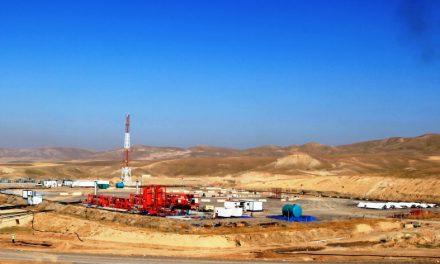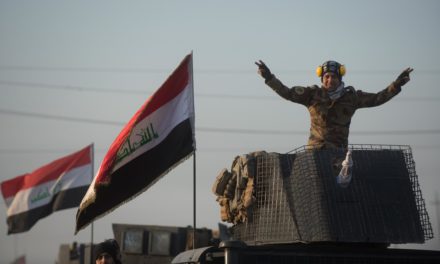On October 10, four people were killed when security forces opened fire against protesters in Iraq’s Kurdistan region. Protesters were demanding their salaries to be paid and the ousting of the Kurdistan Regional Government President Masoud Barzani. The KRG is no stranger to angry demonstrations, and it is no stranger to putting a violent end to them either.
The KRG has a less than pretty record of dealing with demonstrations. The regional government has been criticized multiple times by Human Rights Watch in the past, accusing the government of using violence against protesters and journalists. HRW called on KRG authorities to “end their widening crackdown on peaceful protests in northern Iraq,” adding that “authorities should hold accountable those responsible for attacking protesters and journalists in Arbil and Sulaimaniya… including opening fire on demonstrators and beating them severely.” Unless the demonstrators are protesting against the federal government or showing solidarity with injustices against the Kurds of Turkey or Iran, practicing their democratic right is not tolerated.
While Kurds in Iraq have enjoyed security, it has come at the cost of their freedom and more recently their livelihood. It is difficult to speak critically about the KRG in public without looking over your shoulder. Notwithstanding, your apprehension is compounded by the ubiquitous portraits of Masoud Barzani or his late father, looking down from above a restaurant or shop wall.
The rest of Iraq has been peacefully protesting over two months now with a few instances of rioting in Nasiriya and Karbala and one tragic and inexcusable incident of a young Basrawi demonstrator dying. The death of Muntadar al-Hilfy kick-started the nation wide (minus Kurdistan Region & conflict areas) demonstrations in August of 2015. Other than that, Iraqi cities most notably the capital, have finally shown a new democratic character beyond free elections. It was only a matter time before Kurds began to protest after seeing their countrymen in Baghdad and the south successfully produce consistently peaceful demonstrations. A key difference between the Kurdistan Region and the rest of Iraq is the Kurds do not have a democratically elected leader to rally behind.
Baghdad and the South came together to empower their elected leader to answer to their demands, which Prime Minister Haidar al-Abadi has begun doing. Most recent reforms to be implemented have been the opening of Baghdad’s heavily fortified Green Zone to the public, which came after the downsizing Abadi’s cabinet and dismissing ceremonial positions in the government. While Iraqis under Abadi have just begun in their path of reforms, the Kurds in the north do not know where to start with a president that is over 2 years past his constitutional term limit. Despite two 4-year terms and an illegal 2-year term extension, Masoud Barzani remains the President of the Kurdistan Region. This is not taking into account the fact that Barzani has been the leader from 1991 when the Kurdistan Region gained semi-autonomy from Saddam, and he has remained leader throughout, ruling over half of the region as a result of the split after the Kurdish civil war in 1992.
The KRG often accuses the federal government of centralizing power. However, Baghdad has not interfered in internal Kurdish affairs since the overthrow of Saddam in 2003 unless it was to protest the policy that affected people outside the region.
Having said that, this is no longer Saddam’s Iraq and Prime Minister Abadi must not remain quiet if violence continues to mount in the north. The Kurdistan Region remains a part of Iraq and their citizens’ voice must be protected even if their government wants to silence them once more. Abadi stepped in when the Babil governor imposed a curfew on citizens in the province, similar intervention can take place in Kurdistan Region. Abadi can utilize his relationship with Kurdish leadership in Baghdad to assist in any attempt to help the citizens of Kurdistan Region. Iraqi President, Fuad Masum of the Patriotic Union of Kurdistan (PUK) and Deputy Parliament Speaker, Aram Sheik Mohammed of Gorran are two reputable Kurdish leaders that come to mind. The 30 members of parliament that belong to the PUK and Gorran party can raise concern of police brutality in the Kurdistan Region in Baghdad Parliament as all political members of Gorran have been suspended from Erbil.
The Kurdistan Region has long been a boiling pot of dissatisfied citizens and the KRG has only been able to show stability through the rule of Barzani’s iron fist. However, Iraq’s recent history has shown what happens to the fate of leaders that govern with an iron fist.

Hamzeh Hadad
Hamzeh Hadad is a graduating senior at the University of King’s College in political science. His honours thesis focuses on the democratization of Iraq.










